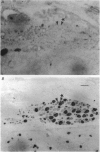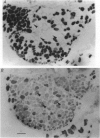Abstract
1. The number of motor units in developing fourth deep lumbrical muscles was reduced by unilateral partial denervation of the muscle at birth, by cutting the lateral plantar nerve. A minority of the motor axons arrive via the sural nerve, and were thus not cut. Those muscles that contained one motor unit (one-unit muscles) after partial denervation developed in the absence of competition between motoneurones. Muscles with two motor units had little competition. A few four-unit muscles were studied for comparison. 2. Isometric twitch and tetanic tensions of single motor units were recorded in vitro at 60 days of age in response to stimulation of the sural nerve. On average, units in partially denervated muscles generated more tension than normal units. The isometric tension characteristics of the units in the one-unit and two-unit muscles were different from the normal units (e.g. slower contracting and more fatiguable). The units of four-unit muscles had properties similar to those of normal muscles. 3. Fibres of an individual unit were identified by glycogen depletion and S (slow) fibres were identified in cross-section that bound a polyclonal antibody to slow type I myosin. Those fibres that did not bind the antibody were designated F fibres. The units of one-unit muscles had the same total number of fibres and fibre type composition (both S and F fibres in the same unit) as estimated from previous work to exist at birth. The units of two-unit muscles contained the same total number of fibres, but apparently fewer S fibres, though this may have been as a result of incomplete glycogen depletion of some fibres. 4. It is concluded that competition between motoneurone terminals is necessary for the withdrawal of mismatched connections on muscle fibres present at birth; or, alternatively, that such withdrawal cannot take place if it would result in denervation of the muscle fibre.
Full text
PDF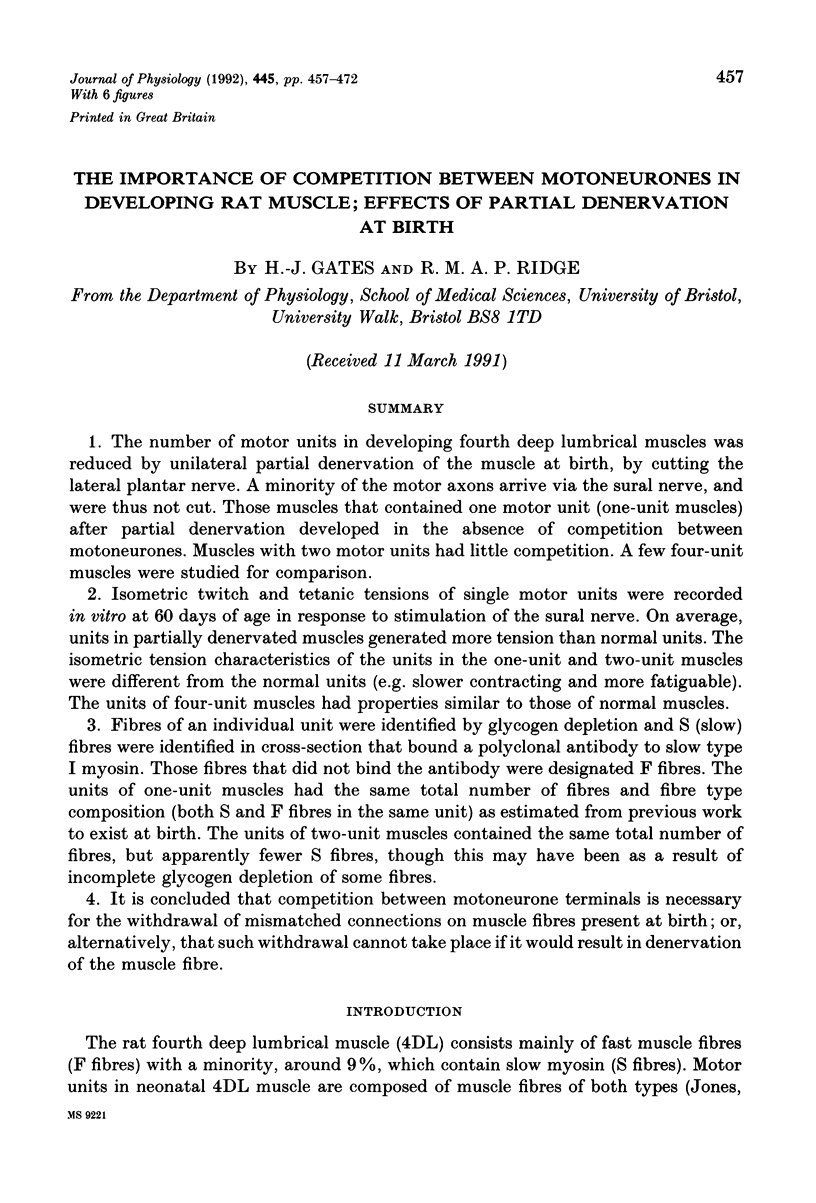
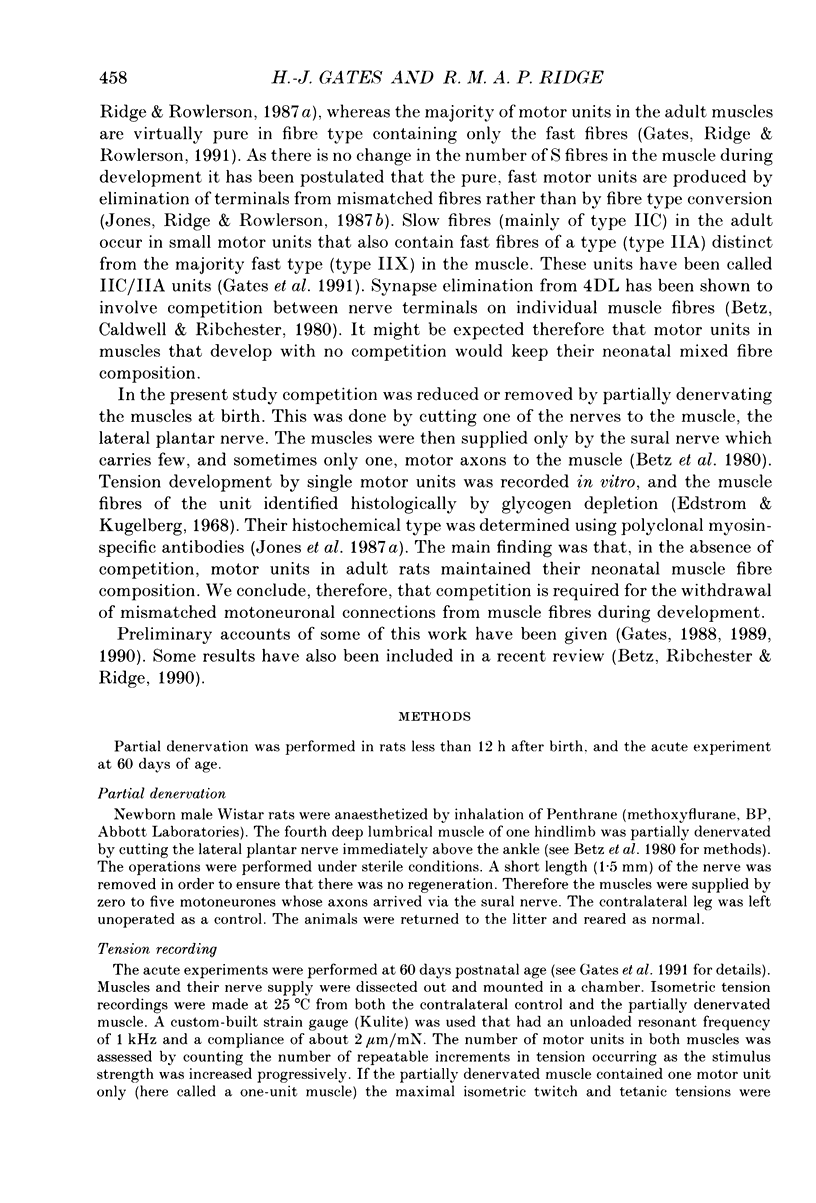
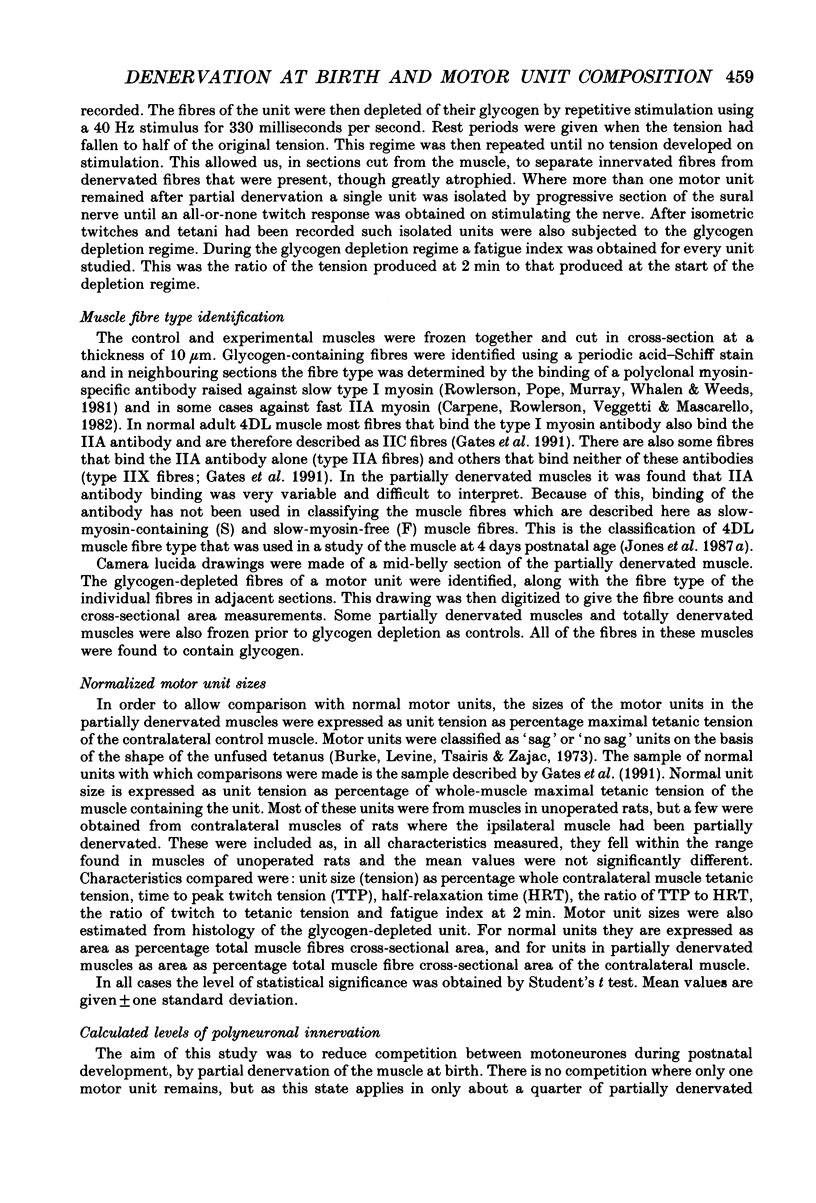
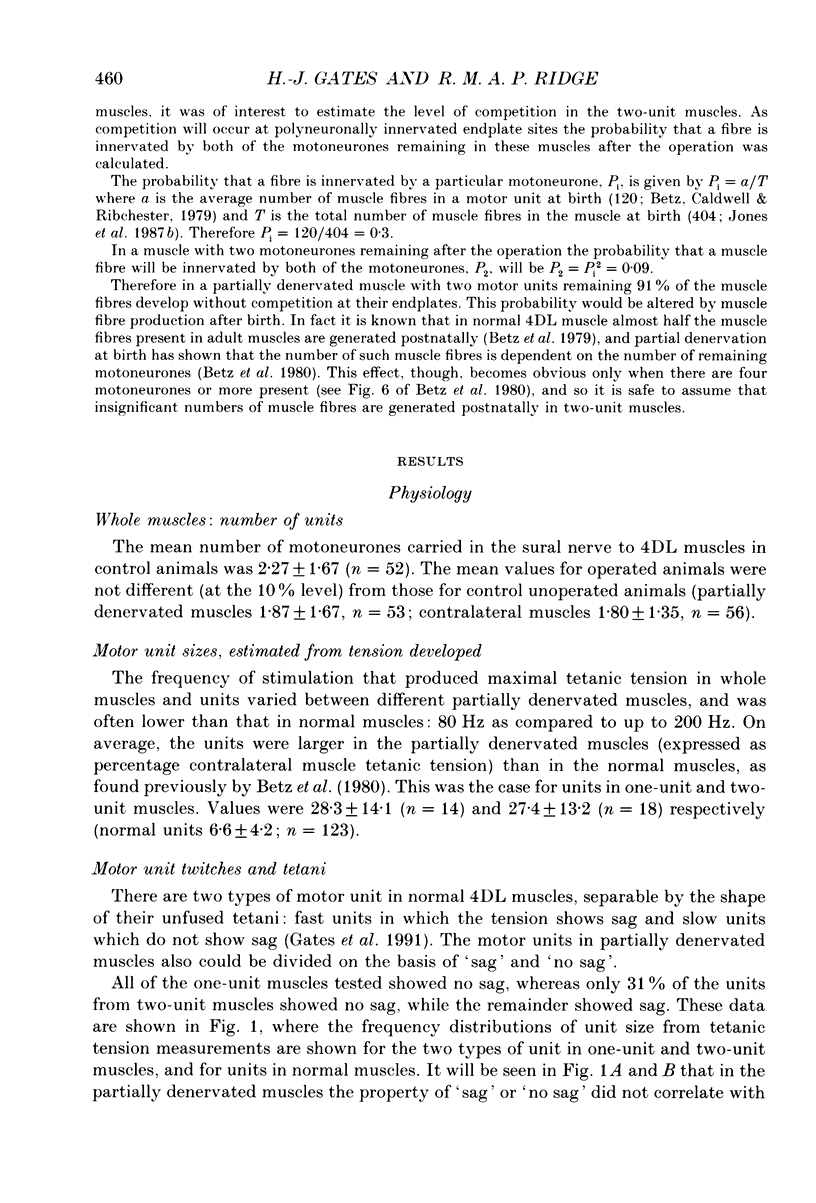
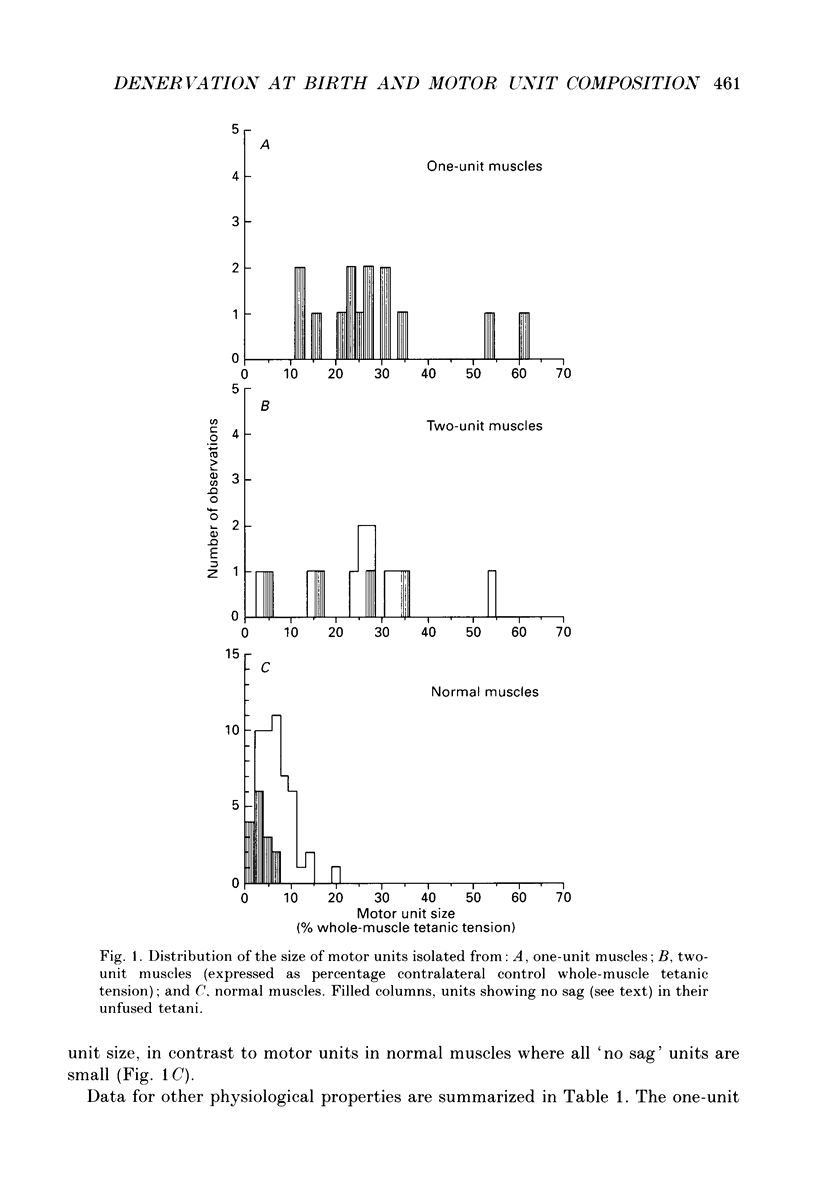
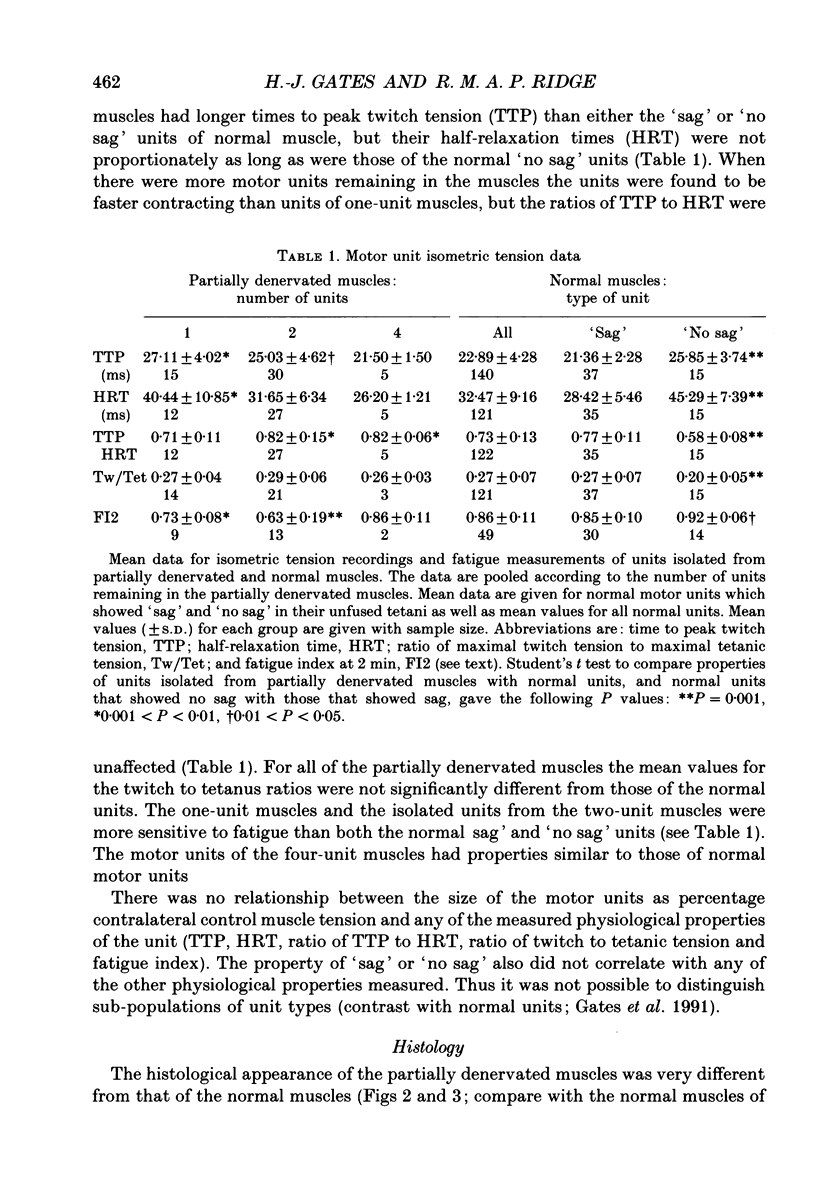
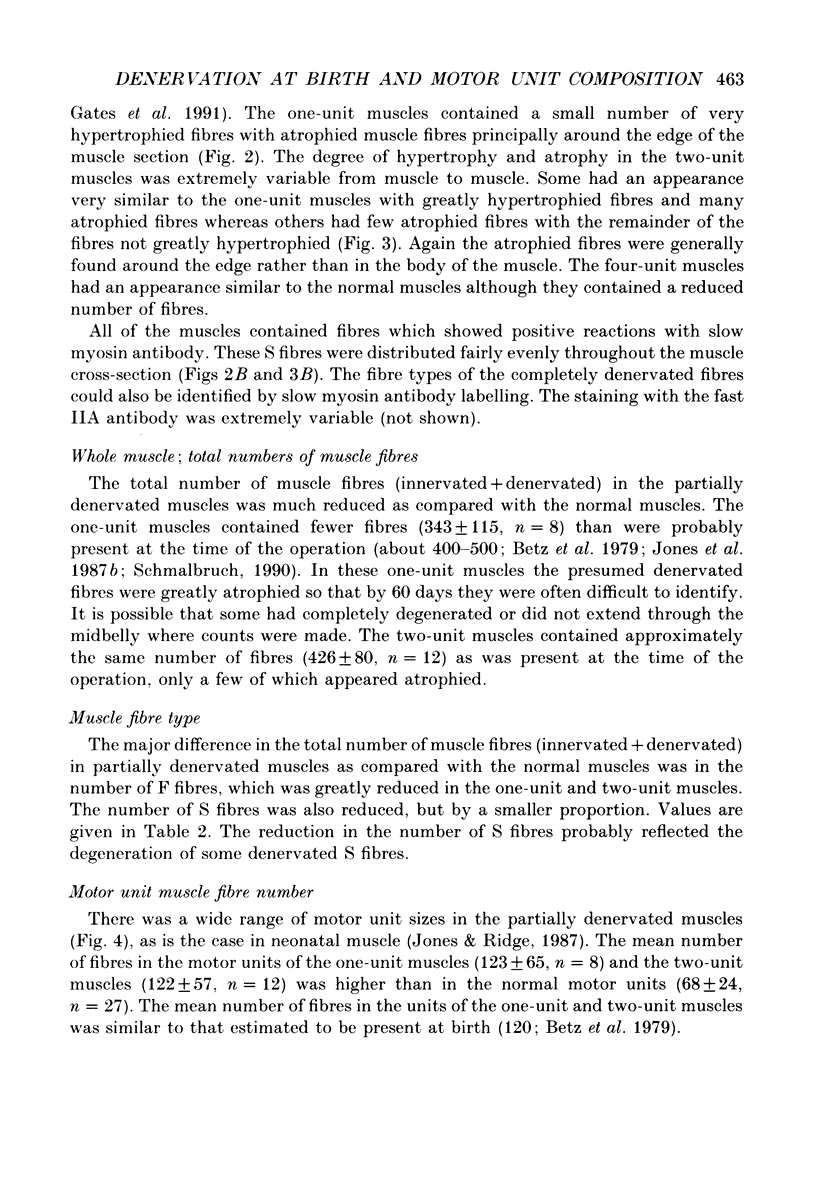
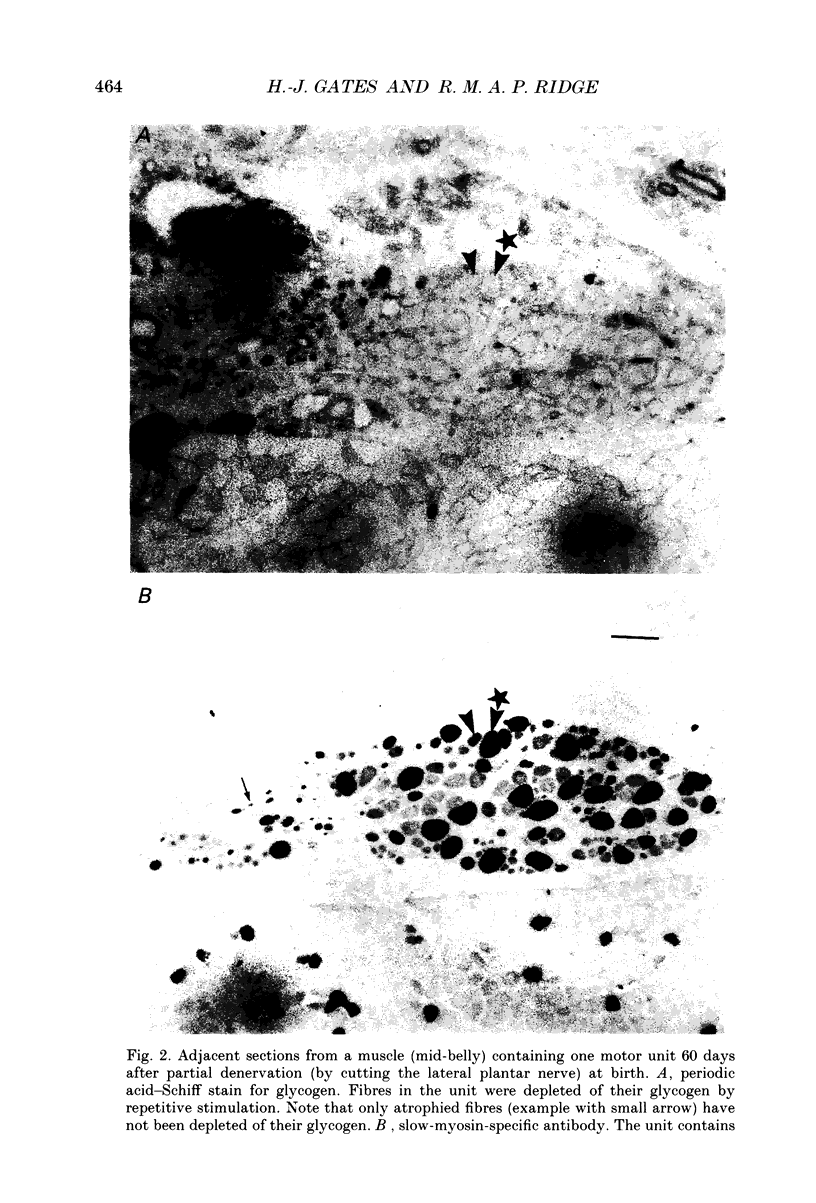
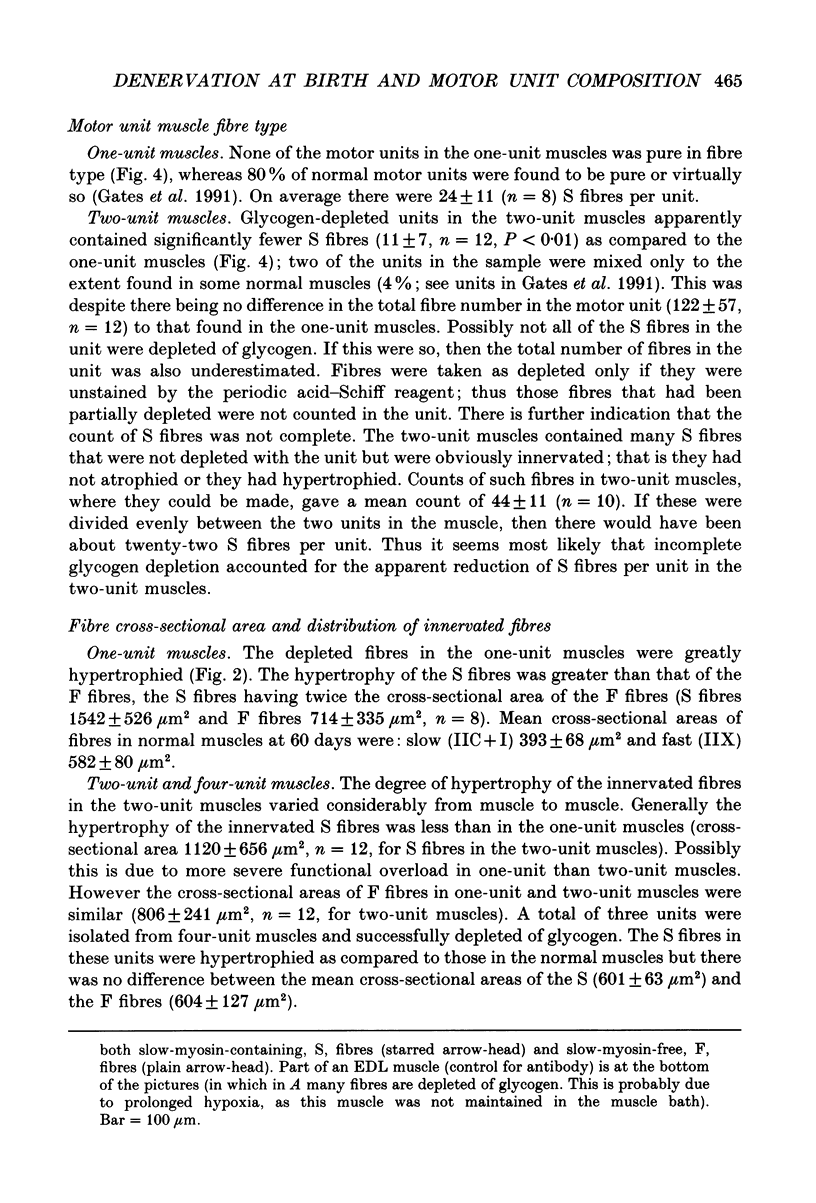
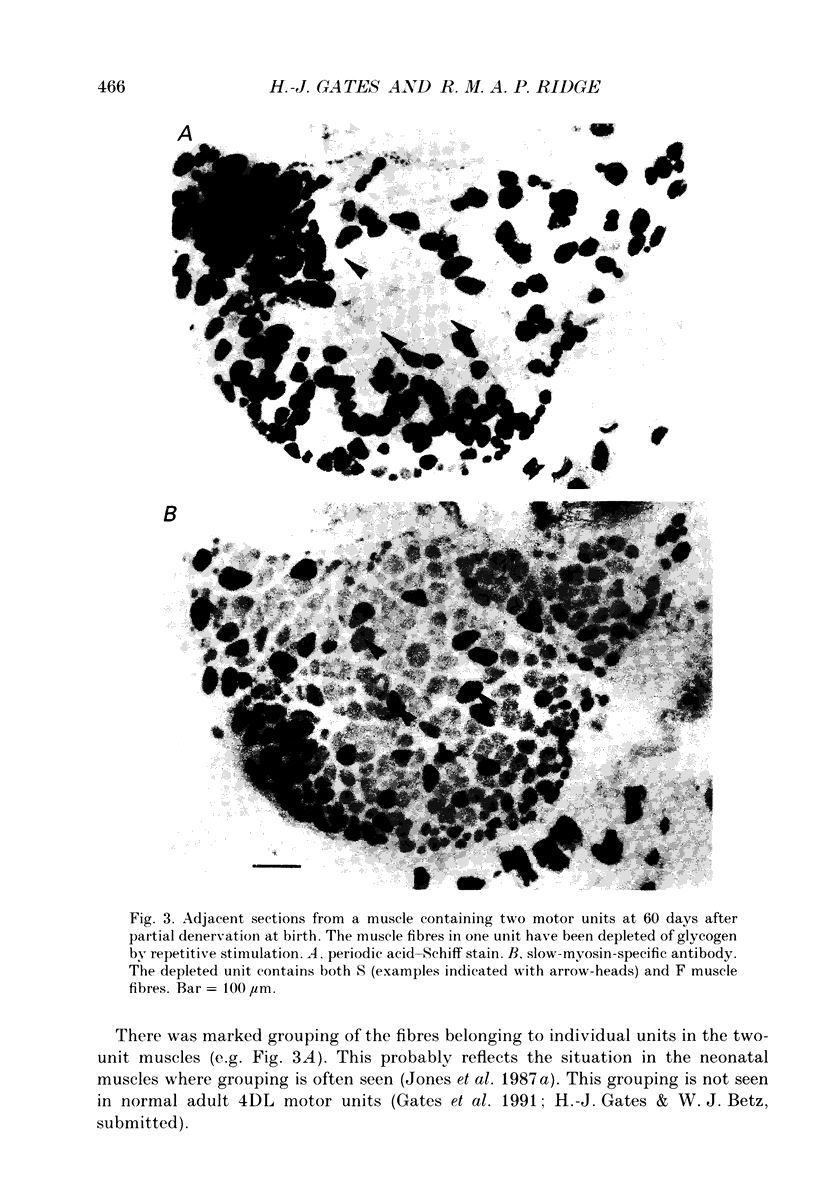
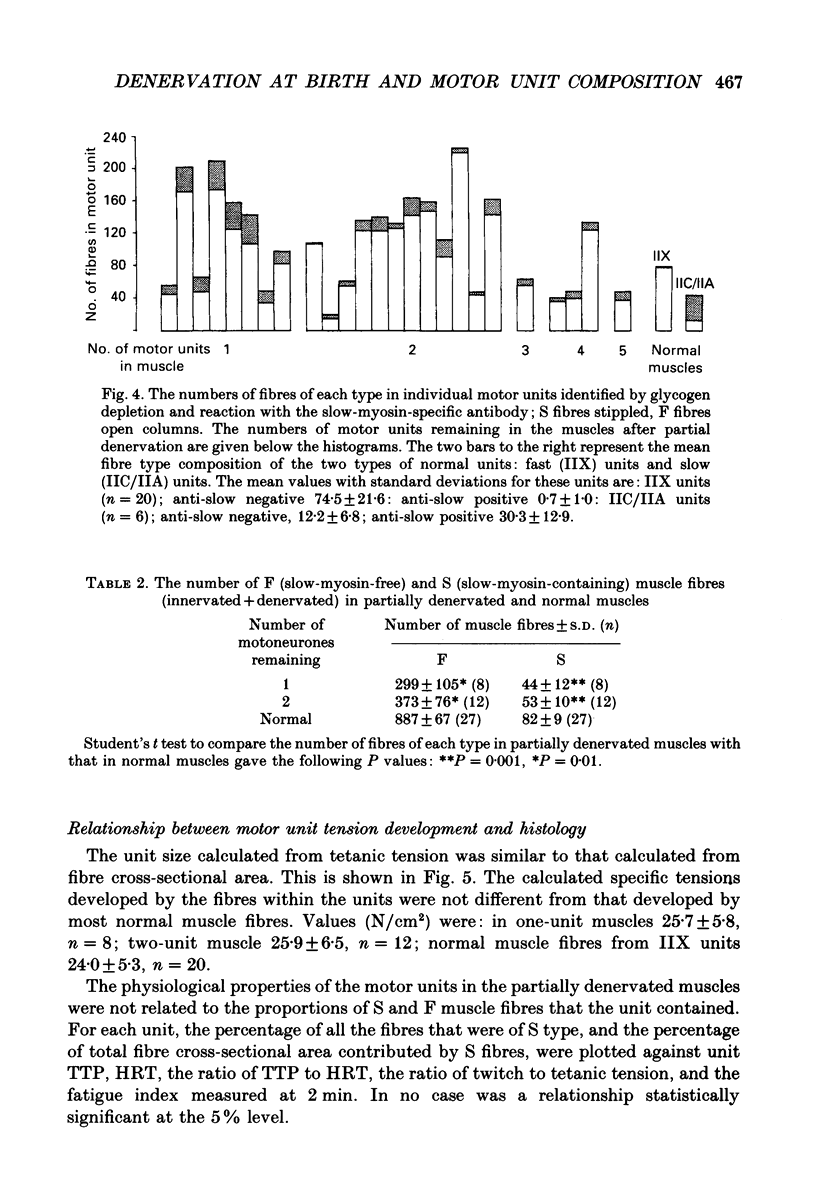
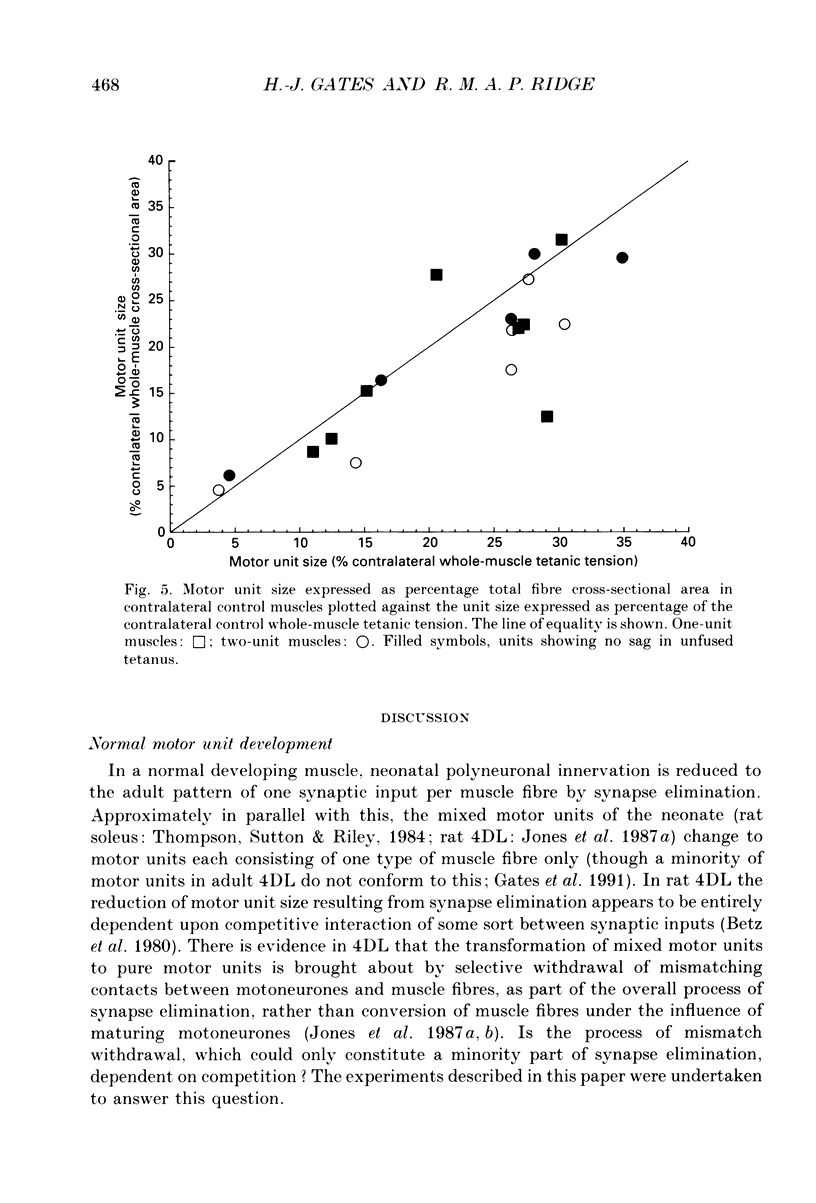
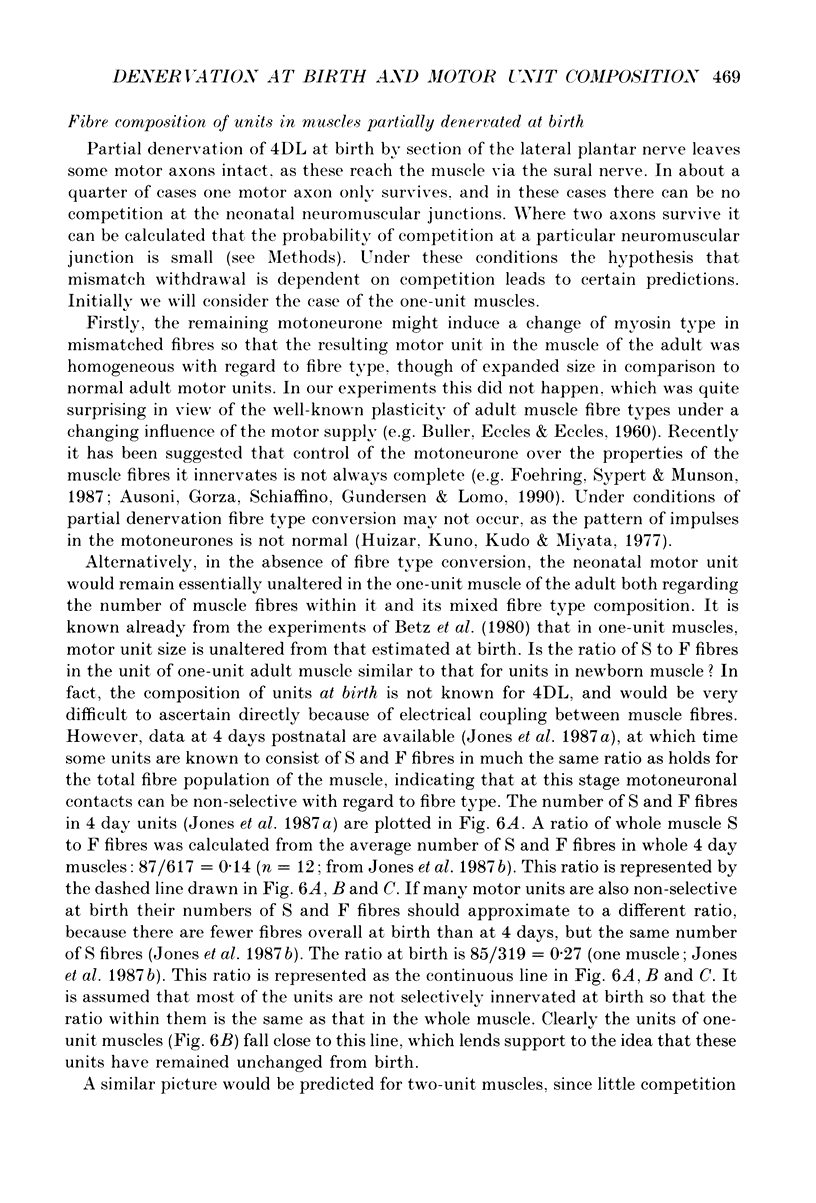
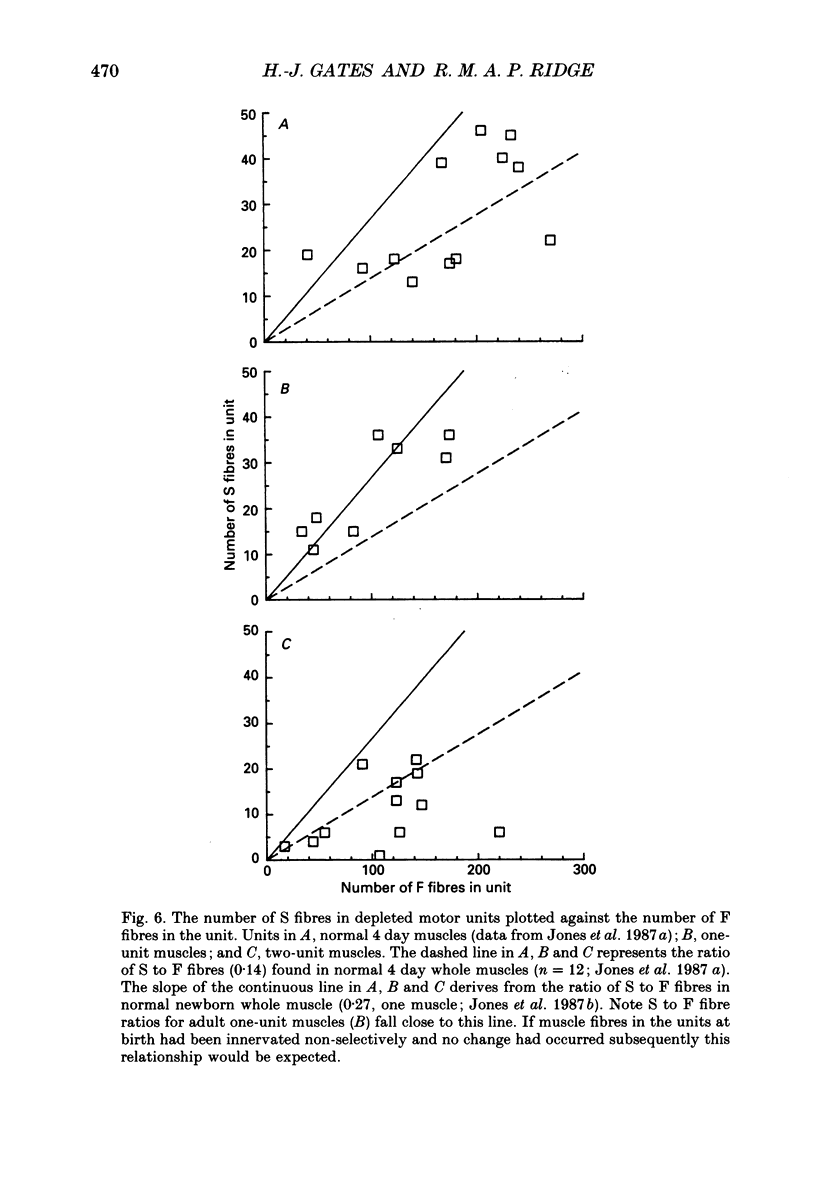
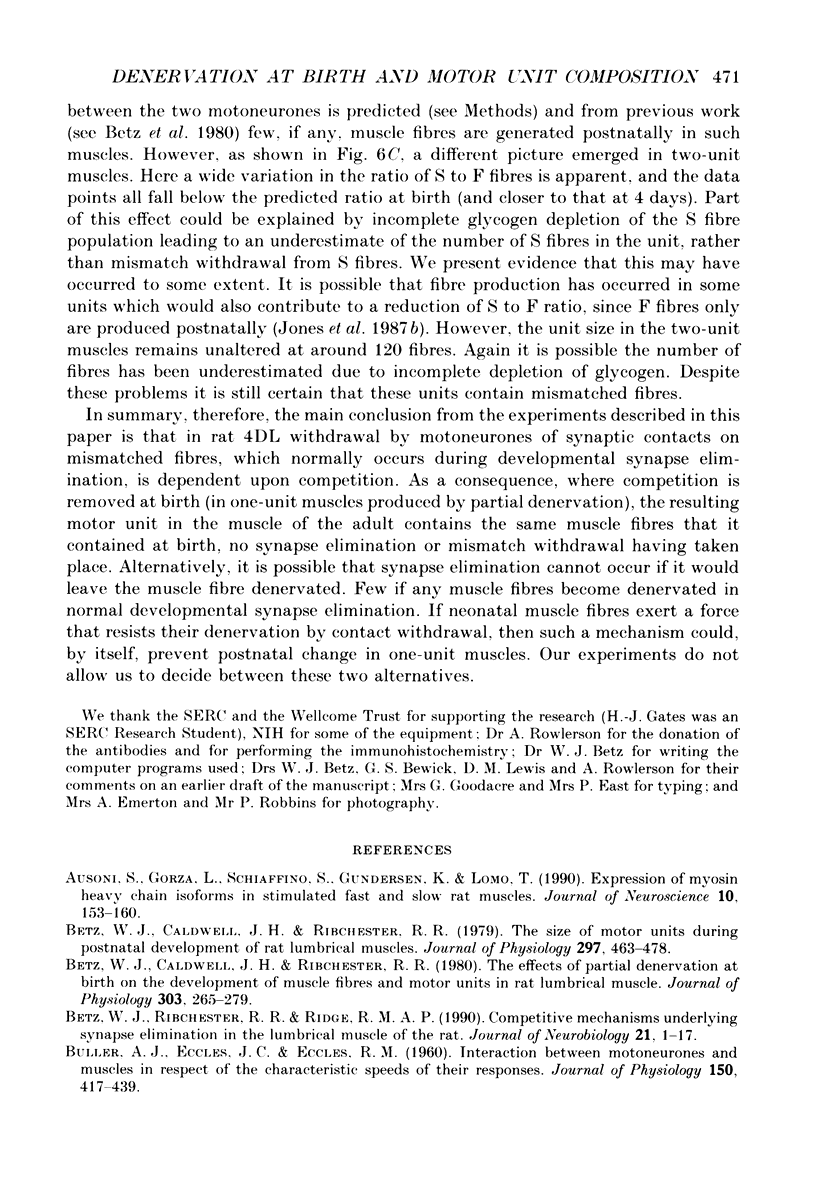
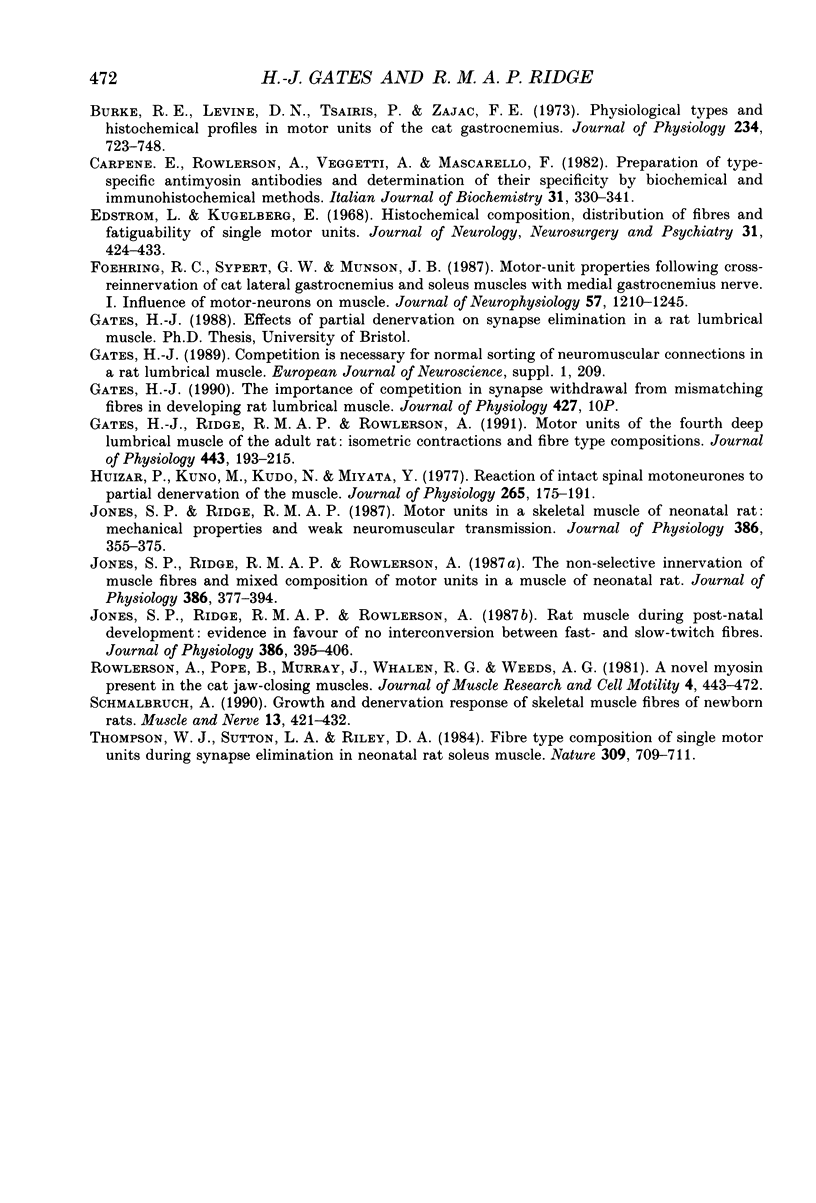
Images in this article
Selected References
These references are in PubMed. This may not be the complete list of references from this article.
- Ausoni S., Gorza L., Schiaffino S., Gundersen K., Lømo T. Expression of myosin heavy chain isoforms in stimulated fast and slow rat muscles. J Neurosci. 1990 Jan;10(1):153–160. doi: 10.1523/JNEUROSCI.10-01-00153.1990. [DOI] [PMC free article] [PubMed] [Google Scholar]
- BULLER A. J., ECCLES J. C., ECCLES R. M. Interactions between motoneurones and muscles in respect of the characteristic speeds of their responses. J Physiol. 1960 Feb;150:417–439. doi: 10.1113/jphysiol.1960.sp006395. [DOI] [PMC free article] [PubMed] [Google Scholar]
- Betz W. J., Caldwell J. H., Ribchester R. R. The effects of partial denervation at birth on the development of muscle fibres and motor units in rat lumbrical muscle. J Physiol. 1980 Jun;303:265–279. doi: 10.1113/jphysiol.1980.sp013284. [DOI] [PMC free article] [PubMed] [Google Scholar]
- Betz W. J., Caldwell J. H., Ribchester R. R. The size of motor units during post-natal development of rat lumbrical muscle. J Physiol. 1979 Dec;297(0):463–478. doi: 10.1113/jphysiol.1979.sp013051. [DOI] [PMC free article] [PubMed] [Google Scholar]
- Betz W. J., Ribchester R. R., Ridge R. M. Competitive mechanisms underlying synapse elimination in the lumbrical muscle of the rat. J Neurobiol. 1990 Jan;21(1):1–17. doi: 10.1002/neu.480210102. [DOI] [PubMed] [Google Scholar]
- Burke R. E., Levine D. N., Tsairis P., Zajac F. E., 3rd Physiological types and histochemical profiles in motor units of the cat gastrocnemius. J Physiol. 1973 Nov;234(3):723–748. doi: 10.1113/jphysiol.1973.sp010369. [DOI] [PMC free article] [PubMed] [Google Scholar]
- Carpenè E., Rowlerson A., Veggetti A., Mascarello F. Preparation of type-specific antimyosin antibodies and determination of their specificity by biochemical and immunohistochemical methods. Ital J Biochem. 1982 Sep-Oct;31(5):329–341. [PubMed] [Google Scholar]
- Edström L., Kugelberg E. Histochemical composition, distribution of fibres and fatiguability of single motor units. Anterior tibial muscle of the rat. J Neurol Neurosurg Psychiatry. 1968 Oct;31(5):424–433. doi: 10.1136/jnnp.31.5.424. [DOI] [PMC free article] [PubMed] [Google Scholar]
- Foehring R. C., Sypert G. W., Munson J. B. Motor-unit properties following cross-reinnervation of cat lateral gastrocnemius and soleus muscles with medial gastrocnemius nerve. I. Influence of motoneurons on muscle. J Neurophysiol. 1987 Apr;57(4):1210–1226. doi: 10.1152/jn.1987.57.4.1210. [DOI] [PubMed] [Google Scholar]
- Gates H. J., Ridge R. M., Rowlerson A. Motor units of the fourth deep lumbrical muscle of the adult rat: isometric contractions and fibre type compositions. J Physiol. 1991 Nov;443:193–215. doi: 10.1113/jphysiol.1991.sp018830. [DOI] [PMC free article] [PubMed] [Google Scholar]
- Huizar P., Kuno M., Kudo N., Miyata Y. Reaction of intact spinal motoneurones to partial denervation of the muscle. J Physiol. 1977 Feb;265(1):175–191. doi: 10.1113/jphysiol.1977.sp011711. [DOI] [PMC free article] [PubMed] [Google Scholar]
- Jones S. P., Ridge R. M. Motor units in a skeletal muscle of neonatal rat: mechanical properties and weak neuromuscular transmission. J Physiol. 1987 May;386:355–375. doi: 10.1113/jphysiol.1987.sp016538. [DOI] [PMC free article] [PubMed] [Google Scholar]
- Jones S. P., Ridge R. M., Rowlerson A. Rat muscle during post-natal development: evidence in favour of no interconversion between fast- and slow-twitch fibres. J Physiol. 1987 May;386:395–406. doi: 10.1113/jphysiol.1987.sp016540. [DOI] [PMC free article] [PubMed] [Google Scholar]
- Jones S. P., Ridge R. M., Rowlerson A. The non-selective innervation of muscle fibres and mixed composition of motor units in a muscle of neonatal rat. J Physiol. 1987 May;386:377–394. doi: 10.1113/jphysiol.1987.sp016539. [DOI] [PMC free article] [PubMed] [Google Scholar]
- Rowlerson A., Mascarello F., Veggetti A., Carpene E. The fibre-type composition of the first branchial arch muscles in Carnivora and Primates. J Muscle Res Cell Motil. 1983 Aug;4(4):443–472. doi: 10.1007/BF00711949. [DOI] [PubMed] [Google Scholar]
- Schmalbruch H. Growth and denervation response of skeletal muscle fibers of newborn rats. Muscle Nerve. 1990 May;13(5):421–432. doi: 10.1002/mus.880130509. [DOI] [PubMed] [Google Scholar]
- Thompson W. J., Sutton L. A., Riley D. A. Fibre type composition of single motor units during synapse elimination in neonatal rat soleus muscle. Nature. 1984 Jun 21;309(5970):709–711. doi: 10.1038/309709a0. [DOI] [PubMed] [Google Scholar]



